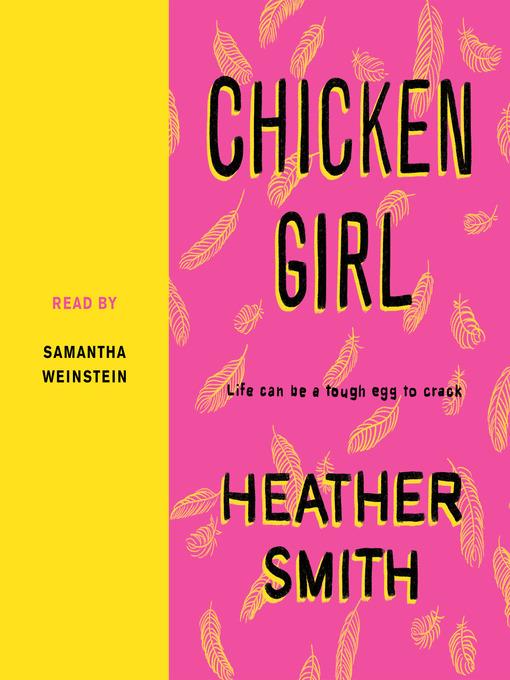
Chicken Girl
کتاب های مرتبط
- اطلاعات
- نقد و بررسی
- دیدگاه کاربران
نقد و بررسی

March 1, 2019
Gr 9 Up-When Internet trolls mock a photo of Poppy posing as Rosie the Riveter, the Canadian teen is deeply hurt and retreats from the world, taking on a job as a fast-food mascot; she wears a giant chicken suit. As she gets to know a young girl named Miracle and deals with numerous family issues, she comes to see her own problems as less serious. Smith explores myriad issues in this novel, including queer identity and coming out, sexual assault, homelessness, sex work, illegal drug use, body shaming, transgender defamation, elder care, white nationalism, immigration, and incarceration, but none are delved into with any depth. Poppy's self-induced loss of identity after being body shamed in an Internet forum is realistic, but her seeking comfort in the sleeping bag of a homeless young man minutes after meeting him is unbelievable. Poppy's own familial economic status seems contradictory at times. Supporting characters feel incomplete. Poppy's obsessive tendencies are not shown as consequential coping mechanisms and instead may be perceived as a flawed character trait. Smith's use of a repetitive onomatopoeia distracts from the story line. VERDICT With a multitude of young adult novels examining timely adolescent concerns, there are plentiful choices in place of this novel to support teens confronting these issues. Not recommended.-Jillian Woychowski, West Haven High School, CT
Copyright 2019 School Library Journal, LLC Used with permission.

January 1, 2019
A Canadian teen wallowing in suffering gets pulled out of it by people worse off than her.About six months ago, the internet was mean to Poppy. She posted a picture of herself posing like Rosie the Riveter, someone digitally edited a hamburger in her hand, fatphobic comments ensued, and Poppy retreated from her life. She stopped doing roller derby and took a job advertising for a restaurant while dressed in a full-body chicken suit. Her parents and twin brother, Cam, worry, but all Poppy wants to do is keep upsetting herself, binging on social media atrocities. When Poppy meets a small girl named Miracle, she's introduced to a community of homeless people and their friends and slowly learns to see outside her own pain. The plot reads like multiple lessons and morals haphazardly cobbled together instead of a novel. Miracle's mother is a sex worker, which appalls judgmental Poppy. Cam recently came out as gay and experiments with flamboyance, leading Poppy to conclude that he's forgetting who he really is, and a rape scene plays into homophobic tropes about predatory gay men. One character seems to exist only to teach the reader about transgender issues, reduced to his desire for bottom surgery and his experiences with transphobia. The book follows a white default with some implied diversity in secondary characters.There's a lot to enjoy about Poppy's voice, but heavy-handed moralizing impedes the reading experience. (Realistic fiction. 14-18)
COPYRIGHT(2019) Kirkus Reviews, ALL RIGHTS RESERVED.

January 1, 2019
Grades 9-12 Full-figured Poppy loves imagining life in the forties. She particularly admires the powerful image of Rosie the Riveter, so much so that she emulates Rosie's dress and iconic pose for an internet pic. But when some joker digitally inserts a hamburger in her hand, the comments become fat-shamingly nasty. Poppy works as a chicken mascot, dancing and waving a sign in front of a restaurant. One day, a six-year-old girl, Miracle, tells Poppy about the people she knows living under a bridge, and Poppy soon meets the array of relatively good-natured misfits who congregate there. Thus there are plenty of characters in the story with intriguing backstories: Poppy's twin, Cam, is flamboyantly coming out; Miracle's mother is a prostitute; Buck is a charming, alcoholic Brit; Lewis is a transitioning teen. The feather-light characterization and the gleeful use of wordplay gives the narrative a lighter tone than might be expected. It's a quick read, so it may be forgiven if emotional transformations bloom a bit predictably. Recommend to readers interested in body image and gender issues.(Reprinted with permission of Booklist, copyright 2019, American Library Association.)

























دیدگاه کاربران